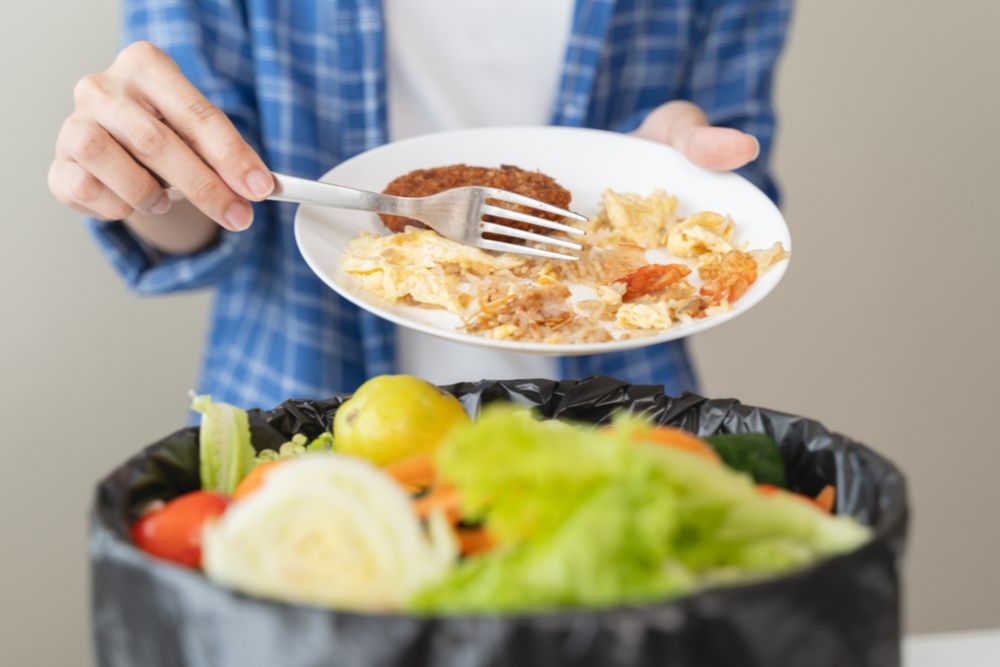Every trip to the grocery store represents both effort and money—and yet, much of that food never gets eaten. According to global studies, the average household wastes up to a third of the food it buys. That’s like tossing a portion of your paycheck straight into the trash. Avoiding food waste isn’t just good for the planet—it’s one of the easiest and most impactful ways to save money. With a few mindful habits, you can make every meal count and every dollar stretch further.
Here are practical money-saving hacks to help you reduce food waste and keep your kitchen running efficiently.
Plan Meals Before You Shop
One of the most effective ways to avoid waste starts before you even step into the grocery store.
-
Write a meal plan: Outline meals for the week so you buy only what you need.
-
Check your pantry first: Take inventory of what’s already at home to avoid duplicates.
-
Shop with a list: Stick to essentials instead of impulse buys that go bad before use.
-
Plan overlapping ingredients: Choose recipes that use similar items—like spinach for salads one day and pasta the next.
-
Schedule “clean-out” meals: Designate one day a week for using leftovers or odds and ends.
Meal planning gives your groceries purpose and dramatically reduces waste from forgotten items.
Store Food Properly
Knowing how to store ingredients correctly can extend their shelf life by days—or even weeks.
-
Use airtight containers: Keep dry goods, grains, and cereals fresh longer.
-
Adjust your fridge temperature: Maintain between 37°F and 40°F to slow spoilage.
-
Store produce wisely: Keep apples and bananas separate—they emit gases that ripen other fruits too quickly.
-
Use clear containers: Seeing what you have prevents food from being forgotten in the back of the fridge.
-
Label and date leftovers: Use masking tape to note when you cooked something so it doesn’t go bad unnoticed.
Proper storage transforms your fridge into a tool for savings instead of a graveyard for unused groceries.
Embrace the Freezer
Your freezer is your secret weapon against food waste.
-
Freeze leftovers immediately: Don’t wait until food starts to spoil—store it while it’s still fresh.
-
Batch cook and freeze portions: Soups, stews, and casseroles freeze well for future meals.
-
Preserve herbs and fruits: Chop and freeze herbs in olive oil trays, or blend overripe fruit into smoothie packs.
-
Freeze bread and dairy: Bread, cheese, and butter last much longer when frozen properly.
-
Label everything: Keep track of what’s stored and when it should be used.
Freezing prevents waste and saves you from emergency takeout on busy nights.
Get Creative with Leftovers
Leftovers don’t have to feel repetitive—they can spark creativity.
-
Transform meals: Turn roasted chicken into soup, pasta, or sandwiches.
-
Reinvent sides: Yesterday’s rice becomes fried rice or a breakfast bowl.
-
Use scraps smartly: Vegetable peels make broth; stale bread becomes croutons or breadcrumbs.
-
Mix and match: Combine small portions from different meals into new dishes.
-
Plan a “leftovers night”: Once a week, clear the fridge and enjoy a mix of everything.
Reimagining leftovers not only saves money but also adds variety to your weekly menu.
Understand Expiration Dates
Many people throw away food that’s still perfectly safe to eat simply because of confusing labels.
-
Know the difference:
-
“Sell by” means it should leave the store by that date, not that it’s unsafe afterward.
-
“Best if used by” indicates peak quality, not spoilage.
-
“Use by” is the only date related to safety, usually for perishable items like meat or dairy.
-
-
Trust your senses: Look, smell, and taste (safely) before discarding food.
-
Rotate your stock: Move older items to the front of your fridge or pantry.
-
Keep an “eat soon” box: Collect items nearing expiration so they’re easy to spot and use.
Understanding these labels can prevent unnecessary waste and save hundreds per year.
Cook in Smaller Portions
It’s easy to overestimate how much food your household needs.
-
Use measuring cups: Portion correctly when cooking rice, pasta, and grains.
-
Start with smaller servings: It’s better to refill than to toss uneaten food.
-
Serve family-style: Let everyone take what they’ll eat rather than pre-plating large portions.
-
Adjust recipes: If you’re cooking for fewer people, halve the ingredients.
-
Store excess immediately: Don’t leave food sitting out—it spoils faster.
Cooking smarter, not more, helps you match meals to appetite and avoid waste.
Learn to Love “Imperfect” Produce
Supermarkets often reject fruits and vegetables that look odd, even though they taste just as good.
-
Shop at local markets: Farmers often sell “ugly” produce at a discount.
-
Join a subscription box: Companies like Misfits Market and Imperfect Foods deliver discounted produce.
-
Blend or cook them: Misshapen fruits are perfect for smoothies, soups, and sauces.
-
Buy bulk and share: Split larger amounts with friends or neighbors.
-
Support anti-waste businesses: Many local grocers and apps now specialize in surplus food.
Buying imperfect produce supports sustainability and keeps your grocery bills lower.
Compost What You Can’t Save
Even the most organized households end up with some scraps. Composting turns that waste into value.
-
Start small: Use a countertop bin or outdoor pile.
-
Compost safely: Avoid dairy, meat, and oily foods that attract pests.
-
Use the compost: Feed your garden or share with community gardens.
-
Join a pickup service: Some cities collect compost along with recycling.
-
Teach kids the process: Turning scraps into soil is both educational and rewarding.
Composting closes the loop—nothing goes to waste, even when it can’t be eaten.
Shop Smarter and Waste Less
Your grocery strategy plays a huge role in preventing food waste.
-
Buy only what you can use: Avoid bulk deals on perishables you can’t finish.
-
Shop more often but smaller: Frequent, focused trips reduce spoilage.
-
Stick to the essentials: Don’t get distracted by sales for items you don’t need.
-
Bring reusable containers: Some stores let you buy just the amount you want.
-
Compare prices and sizes: Sometimes smaller packages are cheaper overall when nothing goes to waste.
Intentional shopping reduces both food waste and spending without feeling restrictive.
Avoid Common Food Waste Traps
Even with good habits, it’s easy to fall into wasteful routines.
-
Overbuying fresh produce: Stick to what you’ll use within a few days.
-
Cooking too much: Save recipes that make sense for your household size.
-
Forgetting the freezer: Frozen meals are your backup plan—use them.
-
Ignoring leftovers: Keep them visible and accessible.
-
Not involving the family: Encourage everyone to help track, plan, and use food efficiently.
Every small action counts. Awareness alone can cut your food waste nearly in half.
Avoiding food waste is about awareness, organization, and creativity—not deprivation. By planning meals, storing food properly, freezing strategically, and cooking smarter portions, you’ll save money while doing your part for the planet. Every meal that makes it to your plate instead of the trash represents a small win for your budget and the environment alike.
Once you start paying attention to how food flows through your kitchen, you’ll discover that saving money doesn’t mean eating less—it means wasting less.





